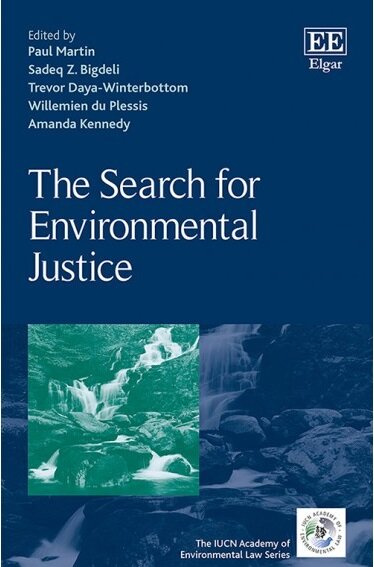As part of the 2015 Conference two Masterclasses will be held on Monday 19th, October from 9am till 12:30pm.
Option 1
Environmental Justice Masterclass
This masterclass — presented by the Australian Environmental Justice (AEJ) project team — will explore ‘environmental justice’ in theory and practice, in Australia and beyond, through its disciplinary and interdisciplinary developments and, especially, from an ecological economics perspective on environmental justice.
Various aspects of environmental justice will be analysed — distributive, procedural, substantive, participatory and recognition. Terms such as ‘ecological debt’, ‘ecologically unequal trade’, ‘water justice’, and specific methods such as ‘popular epidemiology’, will be explained and discussed.
We will draw on some of the more than 1500 case studies on the international online interactive environmental justice atlas (http://ejatlas.org/) to which AEJ contributes. The EJAtlas has been created through the ongoing Environmental Justice Organisations, Liabilities and Trade (EJOLT — http://www.ejolt.org/) project initiated by past-president of the International Society of Ecological Economics Joan Martinez-Alier (UAB, ICTA). This scholar–activist international collaboration has centred on cataloguing the conflicts and analysing the cases of environmental injustice, producing various reports, fact sheets and articles in academic journals.
Participants will learn ways to contribute to — as well as draw from — EJAtlas. We will provide a manual as well as a demonstration of contributing a case study. Successfully processed through EJOLT, case studies constitute refereed publications. No background knowledge is required for this masterclass but we take an engaged, participatory, community of practice approach.
Feel free to email Anitra Nelson with questions or for more details:
Option 2
Ecosystem Service Valuation Masterclass
This masterclass – presented by Paul C. Sutton and Sharolyn Anderson of the School of Natural and Built Environments at the University of South Australia – will introduce the idea of ecosystem services, and the mapping and economic valuation of ecosystem services.
Interest in ecosystem services has increased dramatically in the last decade. Economic valuations of ecosystem services globally exceed the entire value of the world’s marketed economy or global GDP. Current estimates put the global value of ecosystem services at roughly $125 Trillion per year. Losses to ecosystem services as a function of global changes to land cover in the last 10-20 years are estimated to be on the order of 4 to 20 trillion dollars per year (up to 1/3 of global GDP). Losses to ecosystem services as a function of diminished or impaired ecosystem function that result from land degradation, species extinction, and climate change have yet to be completely assessed. Ecosystem services represent an interesting and challenging market failure that the traditional economic world view has dramatically failed to address appropriately.
This course will present an introduction to the nature of ecosystems services, some exploration of the methods used to conduct economic valuation of ecosystem services, some discussion of the utility and non-utility of such evaluations, and an introduction to mapping ecosystem services at national scales using simple benefits transfer methods. The second half of this 3 hour master class will involve a small lab exercise using ArcGIS, a global LandCover data product, and Powerpoint. We will provide a student license of ArcGIS and the data to enable all participants to produce a map of the ecosystem values of any country of their choice and make a figure in powerpoint. We envision this exercise as an easy ‘plug-and-play’ laboratory exercise that can be adopted for courses in GIS, Cartography, and Ecological Economics. Please bring PC laptops for participation in the workshop.
Feel free to email Paul Sutton with questions or for more details:





